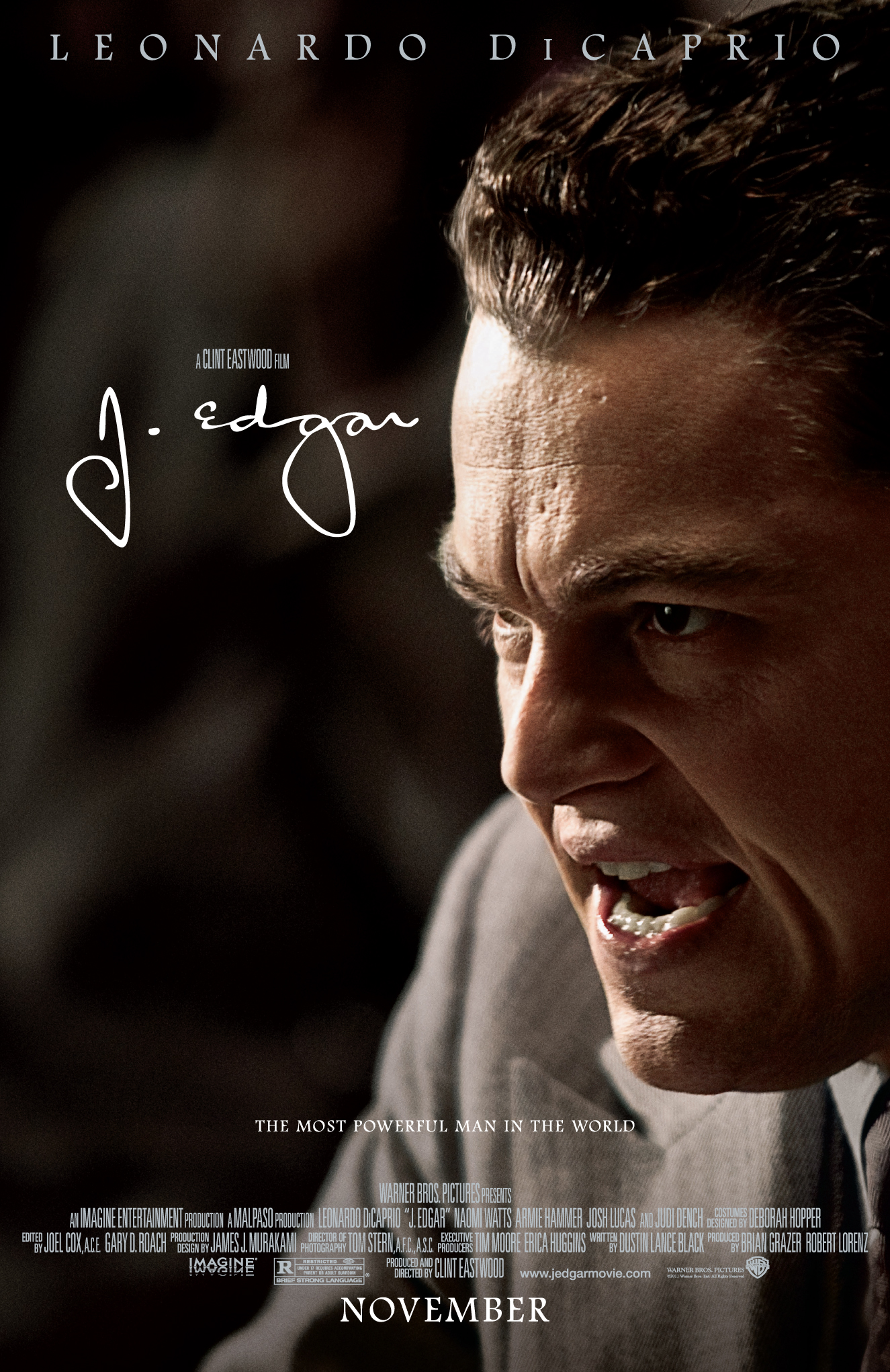For an actor to really be successful, you gotta make us believe– believe that’s not you up on the screen in funny clothes and makeup, just pretending to be someone else. It’s something Leonardo DiCaprio’s worked as hard to overcome as anyone; his baby face, his post-Titanic heart-throb status, and unique voice and mannerisms make it much easier for us to just say, “Hey, it’s just pretty-boy Leo pretending he’s Howard Hughes.”
With J. Edgar, DiCaprio finally breaks through, giving a performance that lets him (and us) escape into one of his characters like never before.
Playing the man who led the (later ‘Federal’) Bureau of Investigation for 48 years, DiCaprio single-handedly kicks off Awards season with a performance to be remembered– and one that actually eclipses the movie as a whole.
Hoover’s career is presented in a series of flashbacks as he tells his tale to a rotating series of junior FBI agents writing his biography. Beginning with the 1919 anarchist bombings and finishing with Nixon’s inauguration, J. Edgar touches on much of Hoover’s often-controversial career– the bulk of the film is centered on the Lindbergh Baby kidnapping case, but John F. Kennedy, Martin Luther King Jr, and Franklin Roosevelt also figure prominently.
Screenwriter Dustin Lance Black (Milk) superbly walks a fine line contrasting the two Hoovers– the visionary crimefighter who pioneered fingerprinting and crime labs, and the socially-disjointed momma’s boy. Unfortunately, much of today’s generation only know Hoover (if they know of him at all) as an old guy who maybe dabbled in cross-dressing, and while Black does openly address the issue of Hoover’s sexuality, it’s presented in a way that meshes well with the rest of the story and isn’t sensationalistic.
Along with DiCaprio, Armie Hammer (The Social Network) gives a stellar performance as Hoover’s deputy (and rumored companion) Clyde Tolson. Both actors play their roles hopping back and forth between 25-year-old and 75-year-old versions (and both men’s older portrayal is the superior one), and there’s a good chance both will hear their names called when Oscar nominations are announced January 24.
Unfortunately, it’s the film itself that doesn’t match the level of the performances and the intriguing subject matter. Director Clint Eastwood seems stuck in slow motion, and using lazy, meandering camera movements and his trademark muted blue and grey color palette doesn’t do anything to bring a sense of urgency.
Anyone who’s so young that they need to look up who J. Edgar Hoover is will most likely be bored. And people who lived through Hoover’s ‘reign’ will no doubt remember the times as a little more turbulent than how Eastwood presents them here.
As a history lesson, J. Edgar is passable. As an acting lesson, it’s one for the books.
3.5/5 stars
